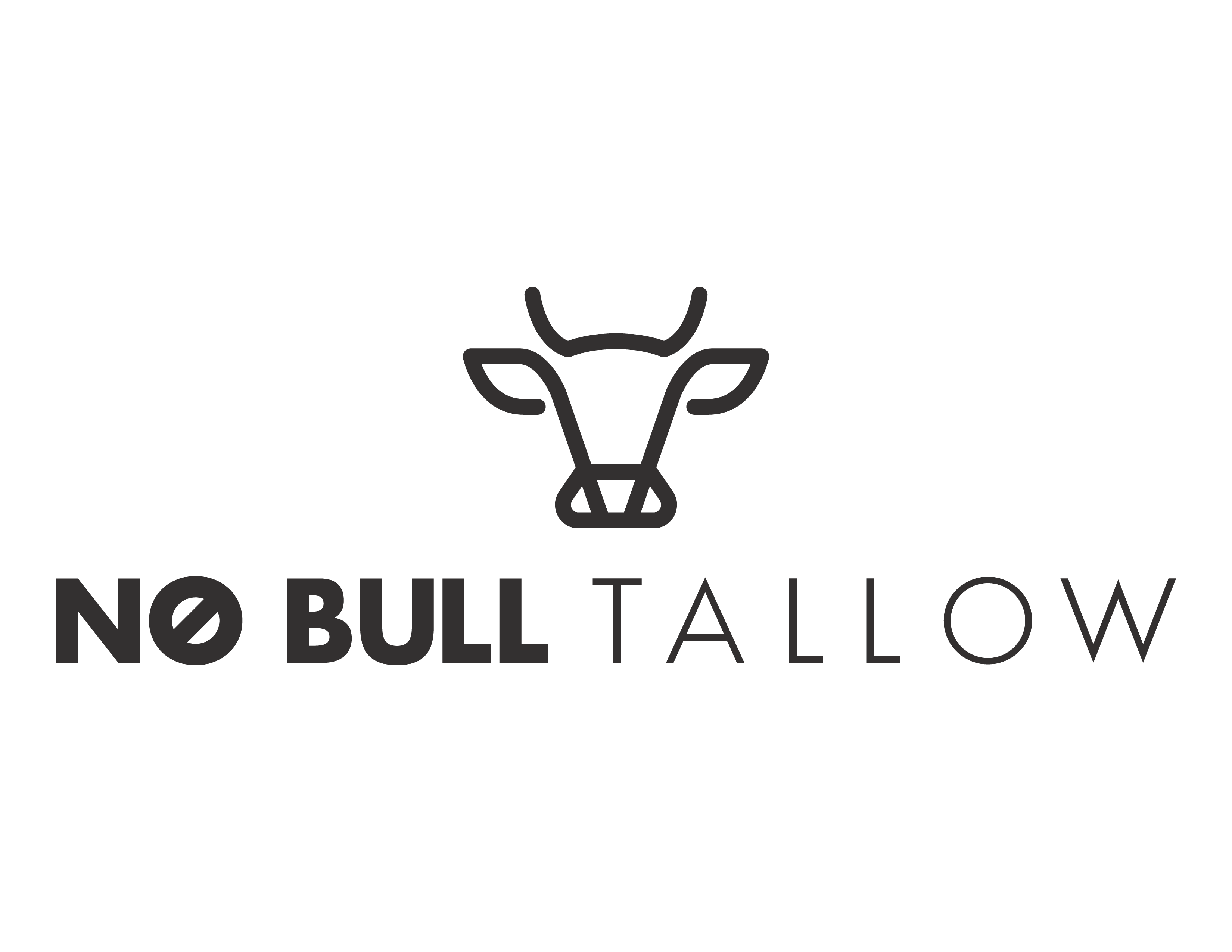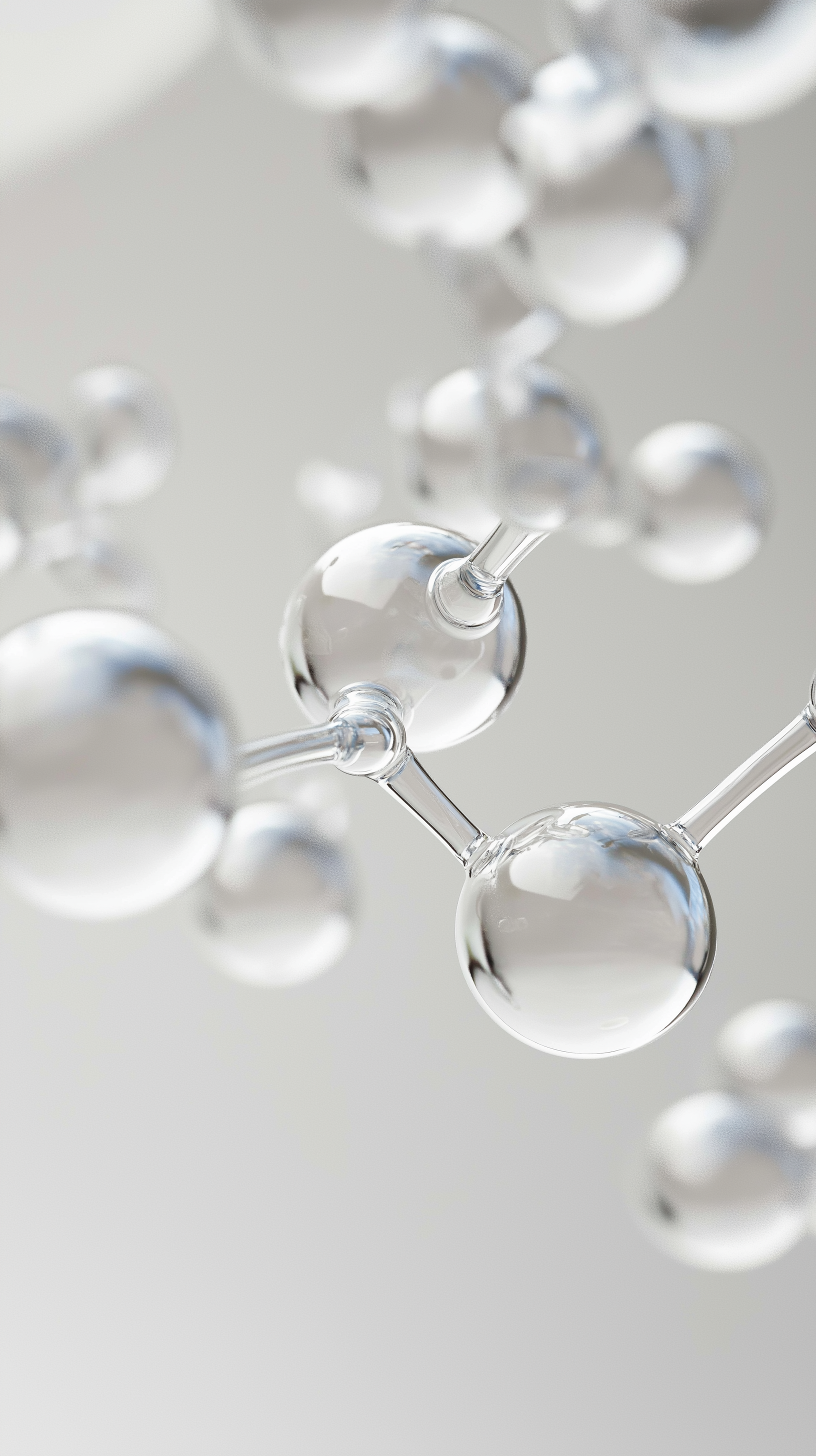The Real Truth Behind Tallow Brands
Not all beef tallow is created equal – and most brands fail to meet our standards.
We source only suet from grass-fed and finished, pasture-raised cattle on regenerative Ontario farms – where animal health and soil quality are prioritized. This ultra-pure fat is then dry-rendered and triple-filtered in-house to preserve its full nutrient profile.
What sets tallow apart isn’t just tradition – it’s its biological compatibility with the skin’s lipid structure, allowing it to absorb fast, support repair, and restore function at the cellular level.
WHAT'S INSIDE OUR PROPRIETARY BLEND?
We rely on skin-identical fatty acids – lipids that your body instantly recognizes and knows how to use. These make up our No Bull Ancestral Lipid Blends™, which nourish, protect, and restore the skin barrier without clogging pores or irritating sensitive skin.
The Fatty Acids Behind Our No Bull Ancestral Lipid Blend™
Stearic Acid
- Role in skin: Helps strengthen the skin’s outer layer (stratum corneum), making it more resilient to environmental damage.
- Why it matters: A major component of human sebum – stearic acid supports structural integrity and a smoother texture.
Tallow contains ~20–25% stearic acid –more than most plant oils.
Oleic Acid
- Role in skin: Enhances penetration of other nutrients and provides deep moisturization.
- Why it matters: Too much can be irritating – but tallow offers it in a balanced ratio.
Tallow contains ~37–43% oleic acid, a Goldilocks zone for barrier repair and absorption.
Palmitic Acid
- Role in skin: Provides protective effects and long-lasting hydration.
- Why it matters: Found in the protective layer of infant skin – incredibly gentle and effective.
Tallow contains ~20–25% palmitic acid – ideal for dry, damaged, or aging skin.
Myristic & Lauric Acids
- Why it matters: These fatty acids are naturally supportive of the skin’s microbiome – they help without stripping.
Found in smaller quantities, but add functional value, especially in balms and soaps.
Conjugated Linoleic Acid (CLA)
- Role in skin: Anti-inflammatory and antimicrobial properties, particularly useful for acne-prone or inflamed skin.
- Why it matters: Rare in most skincare – CLA is naturally present in grass-fed tallow only.
Tallow contains small but potent amounts –enough to support skin healing without overdoing PUFAs.
Benefits of Beef Tallow Skincare
Common Concerns
WHY BEEF TALLOW SKINCARE IS A NON-TOXIC SUPERHERO.

Aging
Fine Lines, Loss of Elasticity
Why it Happens: Aging reduces sebum production and weakens the skin’s lipid barrier, leading to dryness, fine lines, and decreased resilience.
How Tallow Helps: Tallow replenishes depleted lipids with skin-identical fatty acids, helping maintain elasticity, moisture retention, and overall skin function –without irritation.

Dryness
Dry, Flaky Skin
Why it Happens: Synthetic moisturizers, over-cleansing, and environmental stress disrupt your skin’s natural oil balance.
How Tallow Helps: Tallow's fatty acid profile closely mirrors your skin’s own sebum, helping to restore your lipid barrier and lock in moisture – without waxy or greasy residue.

Eczema
Eczema & Dermatitis
Why it Happens: Compromised skin barriers and chronic inflammation lead to irritation, itchiness, and broken skin.
How Tallow Helps: Rich in anti-inflammatory lipids like stearic and palmitic acid, tallow calms flare-ups while nourishing and sealing the skin barrier – without steroids or synthetics.

Acne
Acne & Breakouts
Why it Happens: Overproduction of oil, clogged pores, and imbalanced pH from harsh cleansers and chemical creams.
How Tallow Helps: Grass-fed tallow is non-comedogenic and naturally rich in CLA (conjugated linoleic acid), which helps fight inflammation and acne-causing bacteria while supporting skin health.

Redness
Rosacea & Redness
Why it Happens: Sensitivity to topical irritants and sun exposure often leads to chronic inflammation and redness.
How Tallow Helps: Tallow balms and moisturizer soothes reactive skin with skin- compatible fats, helping reduce inflammation and redness without disrupting your skin’s pH or microbiome.
Why our Tallow Balms are Water Free (Anhydrous)
The first ingredient in most store-bought lotions? Water. No Bull tallow balms are made without water – which means longer shelf life, zero preservatives, and real, lasting hydration.
Water Dilutes
Most store-bought creams are 60–80% water – it evaporates fast and takes hydration with it.
Filler-Free
No alcohols, no synthetics, no gimmicks – just pure, natural skincare your skin can recognize.
Breathable Barrier Repair
Our tallow products seal in moisture without clogging pores – for long-lasting nourishment and skin resilience.
COMMON QUESTIONS, NO BULL ANSWERS.
What makes tallow better than plant oils?
Plant oils are often high in unstable polyunsaturated fats (PUFAs), which oxidize on the skin and can lead to barrier damage and inflammation.
Beef tallow is rich in stable, saturated fats — like stearic, oleic, and palmitic acid — which closely mimic your skin’s natural lipids. That means better absorption, longer shelf life, and support for long-term skin health.
Isn’t tallow just fat?
Yes — and that’s exactly why it works! With a lipid profile nearly identical to your skin’s own, tallow is highly bio-compatible and easy to absorb. But not all fat is created equal. We use grass-fed, pasture-raised suet from regenerative Ontario farms — gently rendered and triple-filtered in-house to preserve purity.
This forms the base of our No Bull Ancestral Blend™: clean, nutrient-rich, and made to support skin at the root.
What about vitamins in tallow?
A lot of brands hype tallow as being packed with vitamins A, D, E, and K — but the truth is, those claims are mostly marketing. Most of these vitamins are present in minimal or non-therapeutic amounts, and some are even degraded during the rendering process. For example:
- Vitamin A (retinol): Trace amounts that support regeneration, but not at clinical levels
- Vitamin D: Largely destroyed by heat — better acquired from sunlight
- Vitamin E & K: Present, but too low to impact skin noticeably
We don’t build our formulas around hype. The real power of tallow lies in its fatty acid profile — stearic, oleic, palmitic, and CLA — which help strengthen the barrier, calm inflammation, and deeply nourish the skin.
Why don’t you use honey?
Honey sounds like a wholesome addition — but it’s 17% water, and water plus fat doesn’t mix without the right formulation.
Add honey to a balm and you’ve got an unstable emulsion that can grow bacteria, mold, or yeast without proper safeguards.
To safely and legally use honey, you’d need:
- An emulsifier to bind water and oil
- A broad-spectrum preservative to prevent microbial growth
- High-shear mixing to avoid spoilage pockets
- Stability testing to verify shelf life
- INCI-compliant labeling with all ingredients declared
Most brands aren’t doing any of this — which means they’re cutting corners and risking contamination. We don’t play that game. That’s why we don’t use honey.
Do you use plant oils?
Only where they serve a purpose.
We use castor for glide, olive/coconut for soap performance, and essential oils in small amounts for targeted benefits. Always balanced around tallow – never replacing it.




